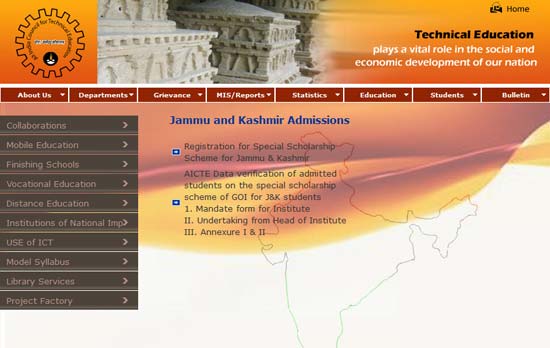
After a gap of almost seven years since the pronouncement of the judgment on Police Reforms by the Supreme Court of India, the J&K Government is finally ready to enact the new Police Act. The bill will be seemingly introduced in the upcoming budget session of the assembly and the Home Department of J&K Government has already kept the draft of the bill available in public domain on the Home Department’s official website and has invited suggestions from the Civil Society, NGO’s, Activists, etc which in fact is a good move.
Making the draft bill public has been our initial demand and we demanded same from the state government when it was planning to introduce the J&K RTI Act 2009 many years back and during that time also, the draft bill was kept in public domain for seeking suggestions from civil society. But only a few people had sent their suggestions including us and till date, we don’t know whether those suggestions were considered or not? During that time we had voiced our demand for holding a public debate but that could’t materialize and it was only after the personal intervention of Mr Wajahat Habibullah, present Chairperson of National Commission for Minorities and former Chief Information Commission, Govt of India, that we have a strong and robust RTI law in our state. Mr Habibullah was in constant touch with the J&K government and finally we got a strong RTI law in J&K, but the government didn’t agree for a civil society debate, except a meeting with the Chief Minister. Now that the government plans to invite suggestions from people on the new Police bill, what is the guarantee that those suggestions would be considered?
BACKGROUND
The debate for Police Reforms generated in India many years back and the New Delhi based Civil Society Organization, Commonwealth Human Rights Initiative (CHRI) played a pivotal role in making various state governments to implement the guidelines of the apex court. CHRI held some seminars and public consultations in Srinagar and Jammu some years back on the issue of Police Reforms. According to the supreme court judgment of 2006 pronounced in connection with a PIL filed by M/S Prakash Singh and NK Singh, both of whom were IPS officers and retired as Director General of Police. The SC had asked for the following reforms in Police:
1. To set up a police establishment board to decide all transfers, postings and promotions of officers below the rank of deputy superintendent and this would ensure that there is a complete halt to political interference in posting of police officers.
2. To set up a National Security Commission & State Security Commission to prepare a panel for selection and placement of chiefs of the central & state police organizations in order to get rid of political interference for postings & transfers of police officers
3. Police chiefs should be given a maximum of two year tenure.
4. To set up independent police complaint authorities to look into public complaints against police officers and setting up of state security commissions.
J&K government had filed an affidavit during the tenure of Chief Minister Ghulam Nabi Azad and had shown its reluctance towards implementing the Supreme Court judgement on the pretext of so called security situation in the state. But with the passage of time, the government has now agreed to enact the new Police law in J&K as per the directions of the apex court but has failed to incorporate all the directions.
Riddled With Flaws
The present draft bill has bypassed the role of Leader of Opposition in appointing/selecting the members for the State Security Commission (SSC) which will be constituted under the new Police law in J&K. If this draft is incorporated and becomes a law, then such commission if constituted will be a pro-government. Pertinent to mention that all other commissions such as Information Commission, Vigilance Commission, etc. cannot be constituted unless Leader of Opposition gives his/her consent and the role of opposition leader is very much present in the respective State RTI and Vigilance Commission Act’s.
The Draft bill also fails to give a two-year fixed tenure to the Director General of Police and no selection process method has been mentioned for the DGP’s appointment.
The Police Complaints Authority (PCA) is an important part of the new police law. This authority requires the applicant/complainant to approach the PCA with affidavit. No complaint will be entertained by the Police Complaints Authority if it is filed six months after the incident. These provisions make this bill very complex and anti-people.
Lastly, the government must organize a public consultation which is our long lasting demand and must invite the stakeholders which includes members of local political parties, human rights activists, NGO representatives, journalists, lawyers and academicians. This consultation will help in incorporating the valuable suggestions from the stakeholders and then only the draft bill could be send to the legislature. Right now, the government wants to enact the Police Act in haste and it is impressed upon the government not to introduce the bill in the state legislature in the upcoming budget session. The government must wait for some time and let the stakeholders’ consultation be held first.
(The Author is a Social Activist and founder of J&K RTI Movement.)













